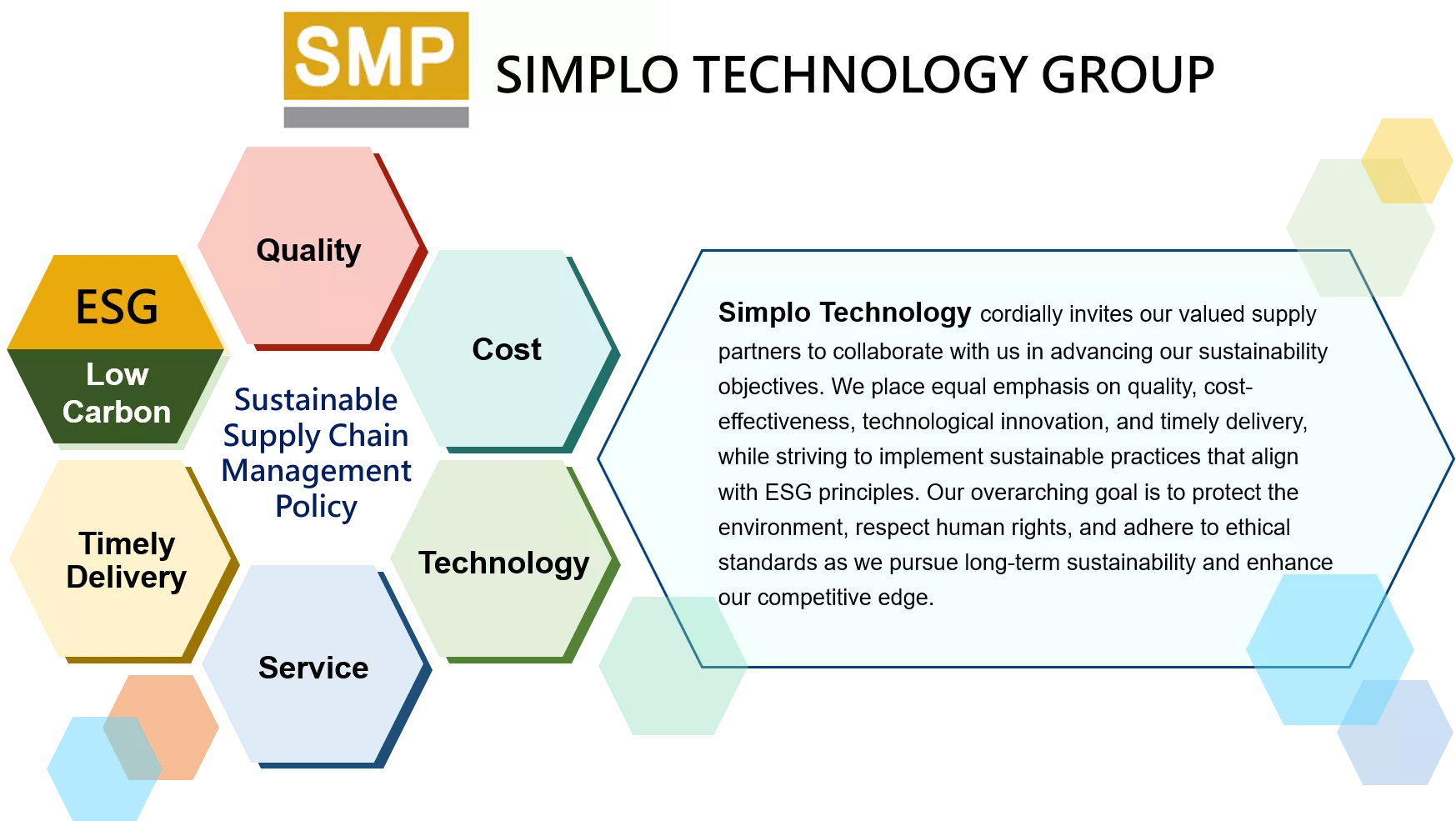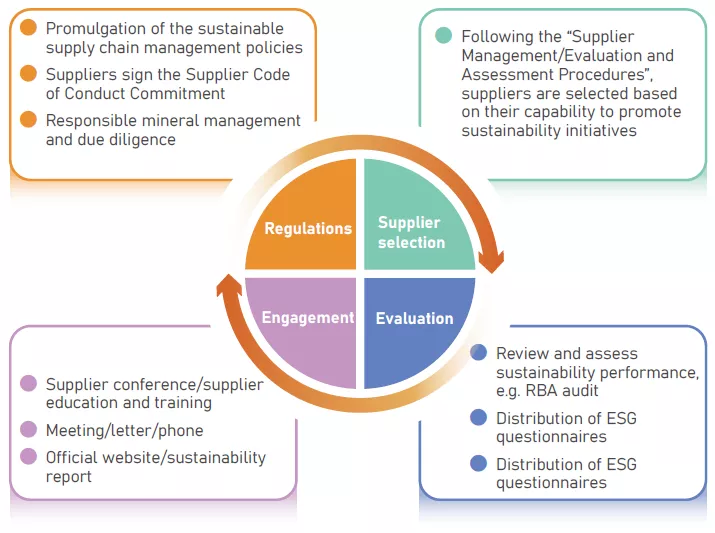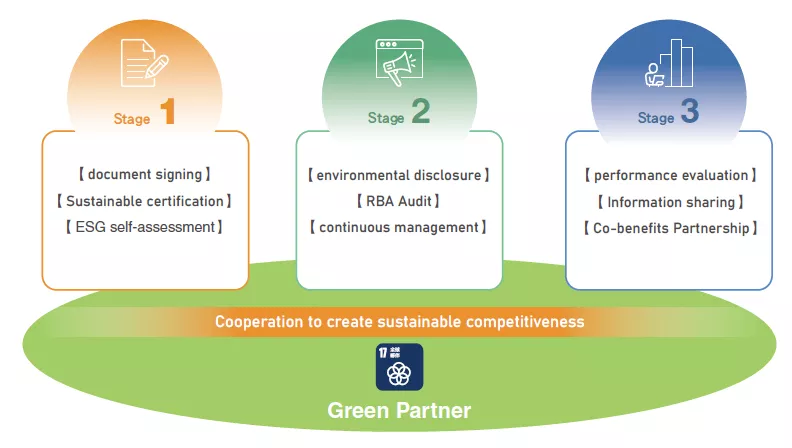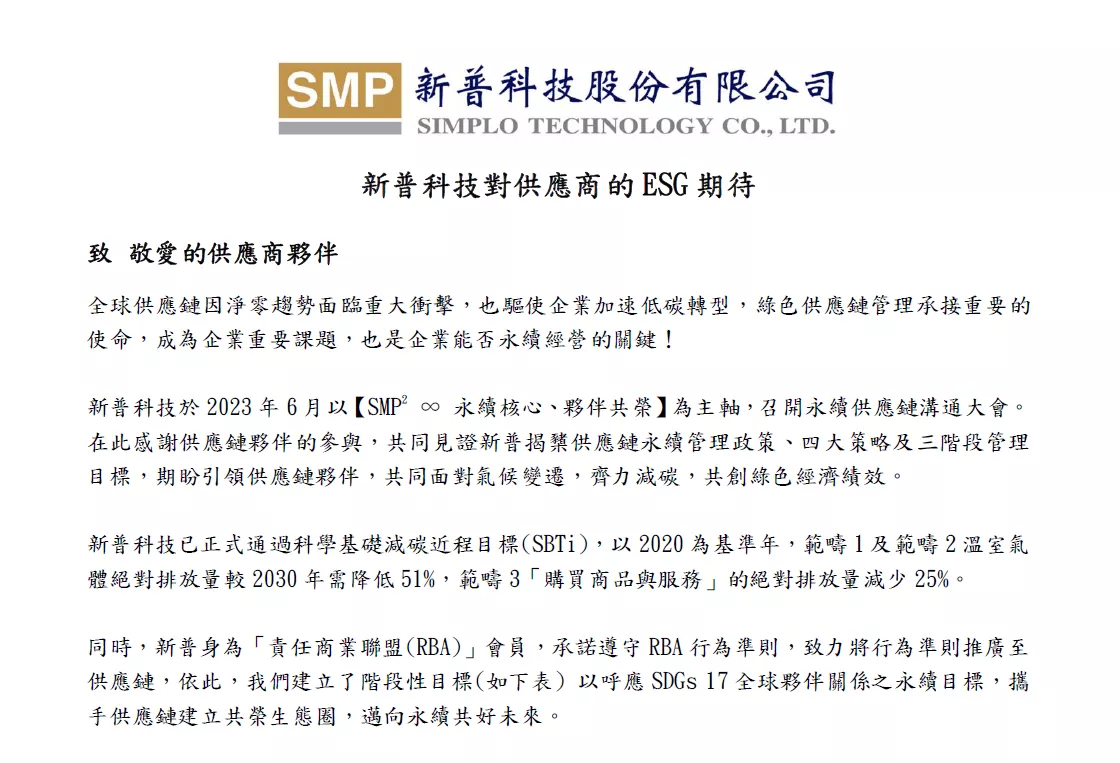Sustainable supply chain management
Global ESG sustainability issues continue to receive significant attention. Countries and companies are actively initiating carbon reduction actions in response to climate change, with many committing to net-zero emissions targets. The scope of carbon reduction efforts is also expanding to include supply chains. Simplo Technology promotes a sustainable supply chain policy. Suppliers are selected according to the “Supplier Management/Evaluation and Assessment Procedures”. Regular audits of suppliers are conducted to ensure compliance with evaluation procedures, and ESG surveys are sent out to understand supply chain risks.
Sustainable Supply Chain Policy
Simplo Technology cordially invites our valued supply partners to collaborate with us in advancing our sustainability objectives. We place equal emphasis on quality, cost-effectiveness, technological innovation, and timely delivery, while striving to implement sustainable practices that align with ESG principles. Our overarching goal is to protect the environment, respect human rights, and adhere to ethical standards as we pursue long-term sustainability and enhance our competitive edge.
In order to deepen the sustainable management of the supply chain, Simplo Technology has established four key goals for the supply chain management that reflect the characteristics of the industry: Climate Actions, Environmental Sustainability, Co-benefit and Risk Management. These goals encompass a range of initiatives, including conflict mineral management, supplier auditing, and GHG management. We hope to partner with our supply chain to achieve these objectives. We look forward to strengthening our collaborative relationship and co-creating a sustainable future together.
 |
Implement a sustainable procurement strategy based on the ISO 20400 sustainable procurement guidelines
Simplo Technology utilizes the ISO 20400 sustainable procurement guidelines to assess sustainability risks, organizational needs, and market potential in procurement activities. This establishes a distinctive sustainable procurement strategy tailored to the Company’s characteristics, serving as the initial step in promoting ESG management across the supply chain.

Four major strategies of supply chain management
Simplo Technology aims to deepen sustainable supply chain management by developing four major management strategies tailored to industry characteristics, including: Climate action, environmental sustainability, partnership for prosperity, and risk management. Additionally, we have established a three-phase promotion goals.

Three-stage promotion goals

|
|
Supplier Engagement
Sustainable Supply Chain Conference
In June 2023, Simplo Technology held a Sustainable Supply Chain Communication Conference, themed “sustainability core, partners co-prosperity”. The conference unveiled Simplo Technology’s Sustainable Supply Chain Management Policy and conducted a signing ceremony to kick off the sustainable supply chain initiatives, witnessed by supplier partners. A total of 83 suppliers and nearly 200 participants attended the event online. This conference also provides RBA education and training for suppliers to explain the relevant requirements of five major aspects: labor, health and safety, environment, ethics, and supply chain management.
Definition of Key Suppliers
Based on 1. procurement volume, 2. key components, and 3. irreplaceability, the selection criteria for key suppliers define three main categories: Battery cells, electronics, and mechanical components.
Key supplier management
According to the definition of key suppliers, 4 battery cell suppliers, 5 electronics suppliers, and 1 institutional supplier were selected, making a total of 10 suppliers. The CPO sent “Simplo Technology’s expectations for suppliers on ESG to key suppliers”, outlining sustainability goals for 2024 to 2026. Simplo Technology will continue conducting sustainability surveys of its suppliers, implementing selection, evaluation, and engagement process. We following the ISO 20400 sustainable procurement principles, conducting regular audits to promptly assess supply chain risk conditions. Through communication, guidance, and training, we aim to collaborate with supply chain partners to enhance operational resilience together.



